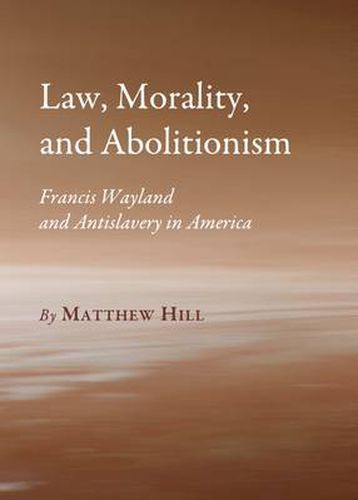Readings Newsletter
Become a Readings Member to make your shopping experience even easier.
Sign in or sign up for free!
You’re not far away from qualifying for FREE standard shipping within Australia
You’ve qualified for FREE standard shipping within Australia
The cart is loading…






In the 1830s the abolitionist movement in the United States refashioned itself under new leadership which was determined to bring slavery to an immediate end. Too often written off by northern and southern opinion-makers alike as fanatics who threatened the social and economic order in America, they struggled in the face of both secular and religious defenders of the institution of slavery. Into this fray stepped Francis Wayland (1796-1865), a leading educator, noted author of textbooks on moral philosophy and economics, and longtime president of Brown University. Initially a moderate on slavery, Wayland with near equal fervor both denounced slavery as sinful and yet countenanced caution in respecting the laws that protected the institution. Like so many of his generation, the flow of events moved him toward Unionism and forced him to confront the logic of his own moral arguments. If slavery was indeed a violation of natural rights, how then could he not act on behalf of those who could not speak for themselves? This work explores his journey.
$9.00 standard shipping within Australia
FREE standard shipping within Australia for orders over $100.00
Express & International shipping calculated at checkout
In the 1830s the abolitionist movement in the United States refashioned itself under new leadership which was determined to bring slavery to an immediate end. Too often written off by northern and southern opinion-makers alike as fanatics who threatened the social and economic order in America, they struggled in the face of both secular and religious defenders of the institution of slavery. Into this fray stepped Francis Wayland (1796-1865), a leading educator, noted author of textbooks on moral philosophy and economics, and longtime president of Brown University. Initially a moderate on slavery, Wayland with near equal fervor both denounced slavery as sinful and yet countenanced caution in respecting the laws that protected the institution. Like so many of his generation, the flow of events moved him toward Unionism and forced him to confront the logic of his own moral arguments. If slavery was indeed a violation of natural rights, how then could he not act on behalf of those who could not speak for themselves? This work explores his journey.